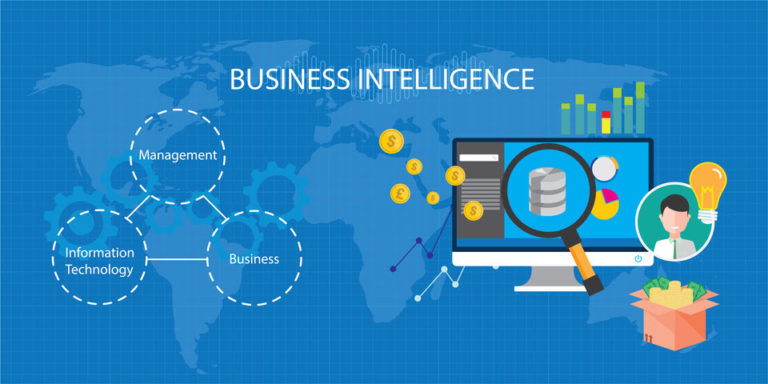Manufacturers use AI, together with machine studying (ML) and deep studying neural networks, to investigate this knowledge and make higher choices. A. The market for synthetic intelligence in manufacturing was pegged at $2.three billion in 2022 and is anticipated to succeed in $16.three billion by 2027, expanding at a CAGR of forty seven.9% over this period. This knowledge depicts the promising way ahead for AI in manufacturing and the way it is the proper time for businesses to invest in the know-how to realize important enterprise outcomes. Artificial intelligence within the manufacturing market is all set to unlock efficiency, innovation, and competitiveness in the modern manufacturing landscape. As the manufacturing landscape continues to evolve, Appinventiv continues to drive innovation and create customized AI/ML solutions that redefine trade standards. To understand the total influence of AI in manufacturing, you will need the help of skilled artificial intelligence development companies.

This AI resolution can predict and forestall small defects and injuries by analyzing how folks move. With smart packages, factories can predict the life expectancy of machines and get them mounted before they break. Predictive upkeep is like predicting when issues machines might break down. Instead of ready for an issue, it checks the well being of apparatus and machinery and predicts their life.
Robotics: The Keystone Of Recent Manufacturing
Manufacturers right now have an opportunity to completely automate their high quality control process. As a outcome, they minimize the risk of defective merchandise entering the market and prevent the drop in quality within the first place. The forecasts can be done on a granular level, helping organizations optimize for particular products and areas. In addition, real-time data from varied sources allows manufacturers to quickly adapt and respond to adjustments in demand. That’s why factory automation is used to optimize the manufacturing process inside a facility. Artificial intelligence brings a broad range of advantages to manufacturers – from bettering the production course of to enhancing buyer expertise.
Industrial robots, often generally identified as manufacturing robots, automate monotonous operations, remove or drastically lower human error, and refocus human workers’ attention on more worthwhile parts of the enterprise. Cobots or collaborative robots are additionally commonly used in warehouses and manufacturing vegetation to raise heavy automotive elements or handle assembly. Often, cobots are able to studying tasks, avoiding bodily obstacles, and working side-by-side with people. From predictive upkeep to produce chain optimization, its purposes are limitless. Artificial intelligence is also revolutionizing the warehouse administration sector of producing.
More correctly than people, AI-powered software program can anticipate the worth of commodities, and it additionally improves with time. It improves defect detection through the use of complicated picture processing techniques to classify flaws throughout a extensive range of industrial objects routinely. In the travel trade, AI has the potential to predict every thing from customer demand to antagonistic climate.
- Handling these processes manually is a significant drain on folks’s time and assets, and extra companies have begun augmenting their provide chain processes with AI.
- Repetitive and rule-based duties are carried out by RPA bots, which assure accuracy and productivity within the manufacturing process.
- Artificial intelligence is remodeling provide chain management for manufacturers.
- Manufacturing companies usually settle for that errors are inevitable with orders coming in on a daily basis, multiple logistics corporations concerned, outdated IT techniques, and stock scattered throughout numerous areas.
- These are only a handful of the changes AI will convey to discrete producers in the near future.
The carefully related machine studying (ML) is the science of getting computer systems to act with out being explicitly programmed. In 1997, a computer powered by AI referred to as Deep Blue beat chess champion, Garry Kasparov. After that, manufacturers realized the key to effectivity, productivity, and profitability lay not in people however in machines. ViAct has developed and rigorously tested its AI-enabled solution to make sure clean housekeeping management. Moreover, viAct’s centralized administration platform – viHUB data complete housekeeping insights, including workplace cleansing records and the day-to-day activities of housekeepers. These insights are readily accessible to stakeholders, offering real-time insights and ensuring the effectiveness of housekeeping management.
Ai-based Linked Manufacturing Facility
Although synthetic intelligence has revolutionized critical manufacturing processes, it’s nonetheless a model new, evolving department of technology. Simply put — implementing AI options comes with its fair share of challenges. AI can optimize the scheduling of producing jobs by considering various elements similar to machine availability, employee skillsets, order priorities, and manufacturing constraints. By utilizing AI algorithms, producers can effectively allocate resources, steadiness workloads, reduce downtime, and improve overall production effectivity.
The Internet of Things (IoT), is all about connecting devices into networks that work together. In the video beneath, you can be taught more about MobiDev’s method to AI-based visual inspection system development. Conversely, AI can work around the clock performing duties with a higher degree of accuracy. It doesn’t get drained or distracted, it doesn’t make mistakes or get injured, and it could work in situations (such as in the useless of night or cold) that we people would balk at.
Predictive Upkeep Improves Safety, Lowers Costs
AI also accelerates routine processes and dramatically enhances accuracy, eliminating the need for time-consuming and error-prone human inspections. AI-powered predictive upkeep utilizes machine learning, sensor data from machinery (detecting temperature, motion, vibration, etc.), and even exterior information just like the climate. For occasion, contemplate a fashion merchandise producer using AI to foretell demand for different clothes objects. One impactful utility of AI and ML in manufacturing is using robotic process automation (RPA) for paperwork automation. Traditionally, manufacturing operations contain a plethora of paperwork, similar to buy orders, invoices, and high quality management reviews. These guide processes are time-consuming and error-prone and may find yourself in delays and inefficiencies.
Smart robots can learn paperwork, type data, and put it in the best place automatically. Cobots, or collaborative robots, often group up with humans, appearing like extra serving to arms. After changes, manufacturers can get a real-time view of the manufacturing facility web site visitors for quick testing with out much least disruption. They can spot inefficiencies in the ground layouts, clear bottlenecks, and enhance output.
However, as AI software improvement takes place over time, we might even see the rise of completely automated factories, product designs made routinely with little to no human supervision, and extra. However, we are going to by no means attain this level except we continue the pattern of innovation. It might be a unification of technologies or utilizing a technology in a new use case. Those improvements are what remodel the manufacturing market panorama and help businesses stand out from the remaining.

Artificial intelligence streamlines the order administration course of by way of automation, stock monitoring, and demand forecasting. Machine studying algorithms analyze historic information to foretell demand and optimize stock ranges accordingly, which helps manufacturers keep away from excess or inadequate stock. For example, Whirlpool makes use of RPA to automate its manufacturing processes, notably on the assembly line and materials handling tasks. Repetitive and rule-based duties are carried out by RPA bots, which assure accuracy and productiveness in the manufacturing process. Whirlpool moreover employs these bots for quality control inspections, using automation to improve uniformity and accuracy in evaluating the completed product.
An airline can use this info to conduct simulations and anticipate points. While autonomous robots are programmed to repeatedly perform one particular task, cobots are capable of learning various duties. They can also detect and keep away from obstacles, and this agility and spatial awareness permits ai in manufacturing industry them to work alongside — and with — human employees. These three applied sciences are artificial intelligence strategies utilized in the manufacturing trade for many totally different solutions.
By tagging and categorizing products based mostly on their features, AI simplifies the search course of, resulting in faster and extra correct results. This not only reduces the time taken for purchasers to seek out the proper products but also improves the overall buyer expertise by making it extra customized and handy. The ability to increase operational efficiency is doubtless certainly one of the primary benefits AI brings to producers. By minimizing or automating repetitive tasks, AI options enable staff to concentrate on high-value activities instead. This means individuals spend much less time and resources on low-value duties, increasing general pace and productivity.

Quality management is a key component of the manufacturing course of, and it’s important for manufacturing. This contains a wide range of capabilities, similar to machine studying, which is a type of AI that is skilled knowledge to recognize images and patterns and draw conclusions based mostly on the knowledge offered. Artificial intelligence is a know-how that allows computer systems and machines to do tasks that usually require human intelligence.
Study From Business Experts With Free Masterclasses
Collaborative robots — additionally known as cobots — incessantly work alongside human employees, functioning as an extra set of palms. If you’ve an thought or are on the lookout for methods to apply AI technologies to your business’s needs within the manufacturing sector, contact us right now to take that first step. The capability to operate a manufacturing unit at peak efficiency 24/7 without the necessity to pay human operators has an enormous impression on a manufacturer’s bottom line. Meanwhile, lowering the workload that must be carried out by staff is an efficient method to stave off the labor scarcity. Manufacturing companies normally accept that mistakes are inevitable with orders coming in all the time, a number of logistics companies involved, outdated IT systems, and stock scattered throughout quite a few locations.
AI considerably contributes to enhancing product visibility and searchability by generating high-quality product knowledge. This information is derived from varied sources corresponding to buyer suggestions, on-line reviews, market tendencies, and real-time gross sales knowledge. AI algorithms analyze this knowledge to produce structured and correct product information, facilitating efficient https://www.globalcloudteam.com/ product searches. In generative design, machine studying algorithms are employed to mimic the design process utilized by engineers. Using this system, producers could rapidly produce hundreds of design choices for a single product. AI is the proper fit for a sector like manufacturing, which produces lots of information from IoT and sensible factories.
Plus, this strategy to development will assist manufacturers reduce waste and prices. Using machine learning, producers can predict future demand and modify stock levels accordingly. Overall, incorporating AI into logistics planning results in greater supply chain visibility, shorter lead times, and fewer waste. But thanks to a mix of human know-how and artificial intelligence, data-driven technology — better known as Industry 4.zero — is transforming the entire sector. Intelligent robots outfitted with sensors and AI algorithms can perform complex duties with precision and adapt to changing conditions. Collaborative robots (cobots) work alongside human workers, enhancing productivity, guaranteeing safer working environments, and enabling tasks that require precision and strength.
